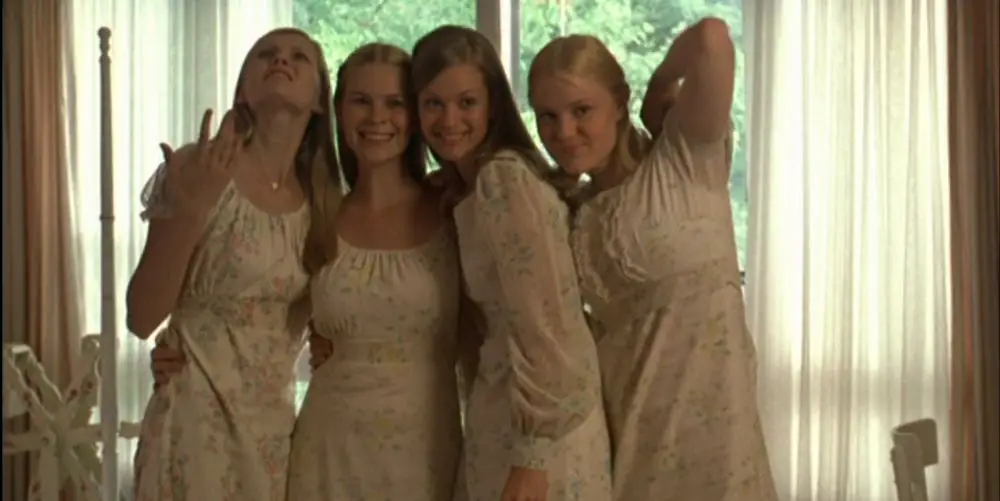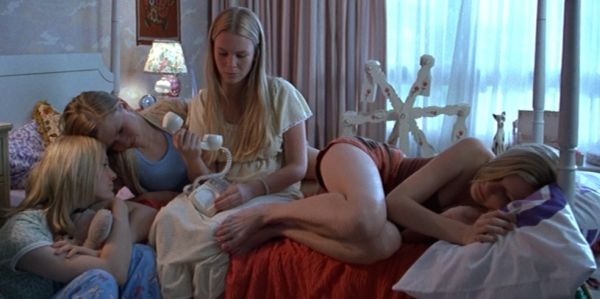Book Adaptations And The Fidelity Argument

Siobhan is a teacher and writer living in Wales, UK.…
Last month it was announced that Kirsten Dunst, in her directorial debut, will be directing Dakota Fanning in an adaptation of Sylvia Plath’s The Bell Jar. In an interview, Dunst has noted that her approach in adapting the seminal text has been to avoid the ‘didactic’ and instead ‘make a life of something … you really need to make your own scenes up’.
Such an approach, while entirely refreshing for me, is one that regularly receives criticism from those that view the source text as somehow sacred, and thus static and intractable.
The fidelity argument
As with all adaptations of beloved source texts, there are those who would prefer the adaptation to be rendered on-screen as entirely faithful to the central conceit posited by the author. Anything less, for those who demand fidelity, is lacking.
For the purposes of discussion surrounding film adaptation, fidelity refers to the ‘notion that purportedly measures the extent to which a work of literature has been accurately rendered (or not) as a movie’ (McFarlane, 2007). Yet those who belief utter faithfulness to a text is essential, are entirely misunderstanding the medium of film. It is impossible to simply project the text on-screen, and this should certainly not be encouraged, as to do so underestimates the power and capacity of film.

Indeed, this concept of faithfulness seems incongruous with the very nature of reading a literary text as each reading is ‘a highly individual act of cognition and interpretation’ (ibid.) and yet, each individual will frequently cite their disappointment that the film has not lived up to their own individual expectations, as if it ever could. One only has to look at the furore involved regarding any adaptation process which included detailed and exhaustive discussion of casting, setting and dialogue to see how convoluted any adaptation is.
Daniel Craig’s casting as Bond, or Jennifer Lawrence’s portrayal of Katniss Everdeen in The Hunger Games generated much disgruntlement, with fans frequently citing their own perception of the character as their starting point for any casting decisions.
Similarly, one only has to search online for book adaptations to be met with a myriad of articles citing inexcusable changes made during the adaptation process. It seems rather bizarre that such critics expect their own, highly personal interpretation to not only be the one seen on-screen, but that they also dismiss the idea that the resulting adaptation is simply the director’s own personal response to the text.
The capabilities of film
Often, an adaptation of an intellectual novel is seen as an attempt to please the masses. Still, despite the plethora of finely crafted book adaptations, there still exists some sense of disparity between the quality of a novel and the quality of a film. Many cite the concept that a ‘film makes fewer demands on the imagination than a book does’ (ibid.) suggesting that the reading of a novel allows for the development of imagination, whereas a film is rather prescriptive in its viewing.

Certainly a film cannot possibly allow for the same multifaceted interpretation in terms of visuals, as those visuals are presented on-screen, but such an approach is highly reductive and simply does not recognise the capabilities of film in comparison to a novel.
A viewer of a film is not simply passive as a viewing of a film requires the same intense analysis as any novel. After all, for a film to be effective it ‘will require that we pay attention to the intricate interaction of mise-en-scéne … the editing … and sound’ (ibid.). In fact, a film can and does offer a more varied approach when featuring narrators as Stam (2004) writes:
“In a novel, the narrator controls the only track – the verbal track. In a film, the narrator can partially control the verbal track – through voice-over – but that control is subject to innumerable constraints … In a film, the other characters instantly gain a physical presence denied them in the novel.”
Thus an adaptation allows for a greater variety of interpretation and character development.
Creating a successful adaptation
How then, can a text be adapted successfully? Importantly, a detailed understanding of the novel’s central concept is crucial, yet that should not necessarily be considered as the starting point. Some of the best book adaptations are ones that demonstrate little deference to the author’s intention.
Rather, it is a clear creation of tone and mood that is more important than any adherence to dialogue or plot development. Ultimately, an entirely faithful adaptation is, for me, useless. Film is its own medium and art form, and should be treated as such. An adaptation is not simply a visual form of the words typed.

Watch Sofia Coppola’s The Virgin Suicides for a masterclass in film adaptation. Her film not only captures the listless quality of Eugenides’s novel, but successfully creates a dreamlike tone through music and visuals. Such creation is obviously impossible to do so in a novel.
Coppola recognises that her adaptation is, once projected on-screen, an artwork in its own right. For me, this is the approach to take. One that recognises the possibility and capability of film and extolling these virtues, does so to create an individual response with little consideration to individual readings.
Do you agree? Which adaptation is your favourite?
Bibliography:
McFarlane, B. (2007) The Cambridge companion to literature on screen. Edited by Deborah Cartmell and Imelda Whelehan. Cambridge: Cambridge University Press.
Stam, R. (2004) Literature through film: Realism, magic, and the art of adaptation. Malden, MA: Blackwell Publishing.
Does content like this matter to you?
Become a Member and support film journalism. Unlock access to all of Film Inquiry`s great articles. Join a community of like-minded readers who are passionate about cinema - get access to our private members Network, give back to independent filmmakers, and more.
Siobhan is a teacher and writer living in Wales, UK. She holds a BA in English and an MA in Film and Television Studies. She is especially interested in depictions of female desire, transitions from youth to adulthood and performative gender. She tweets at @siobhan_denton and writes at https://theblueandthedim.wordpress.com/













